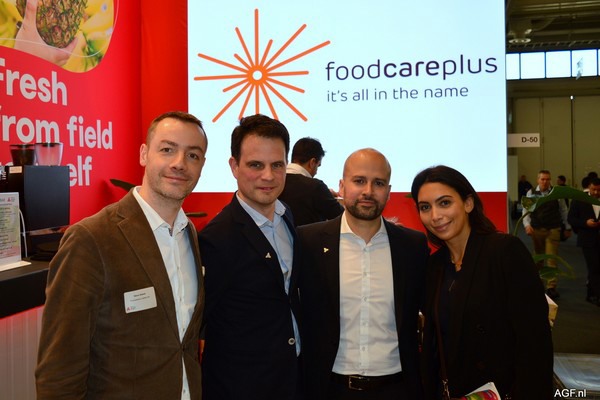Incidents around the Red Sea persist, and while multiple parties are currently seeking short-term alternatives, the problems seem to be dragging on longer than expected. "We'll have to find future-proof solutions for the logistics chain," begins Steve Alaerts of Foodcareplus in Belgium. He joined the board of the International Fresh Produce Association (IFPA) last year. There, he will focus on building a fresh produce supply chain for the future. Steve sees synchromodality playing a significant role in this 'Fresh Supply Chain of the Future'.
When the attacks began, the primary focus was on the immediate consequences and how to find solutions as quickly as possible. "Now, a few weeks later, people are beginning to realize this isn't ending soon. They're considering their business processes schedules. The urgent time has given way to reflection. During the pandemic, there was plenty of talk in the logistics chain about decreasing dependency."
"That's on certain regions, infrastructure, or business partners. But people are falling back into old habits. Many food companies' cargo flows are still very much based on old concepts with limited scenarios in case of a problem. But what if something happens? Who has a plan for that? How will we solve that issue strategically? How will our stakeholders keep making money?" Steve wonders.

The logistics service provider's director sees that the shelling by the Houthi rebels in the Red Sea is having several effects. "There's the direct impact due to the current events. Consider, for instance, avocados or mangoes. These East African products must come to Europe within a few weeks. East Africa's quality isn't always on par with what other parts of the world bring to market."
"If shipping companies don't find a solution quickly, there may be no alternative service to get the fruit to Europe in good time. The same goes for the grape flows from India. These have to be shipped to Europe now, and they're at their wits' end there. Those delays can have catastrophic outcomes for the fruit," Steve admits.
Extra costs, mainly within the chain
"That means we're seeing the first price shocks due to the sensitive increases in transport and additional costs shipping companies want to make back. Also, if products no longer arrive from a particular region or the fruit suffers long delays, other supply regions will come under more pressure. Though, if there are losers, there are always winners. Countries that can supply the fruit can ask for more. That will ultimately also increase price pressure.
Steve explains that there is an additional cost factor in this case. "Don't forget that during the pandemic, delays meant insurers had to pay absurd amounts to insured companies. That resulted in all those contracts being rejected after that and many delay clauses being scrapped. Importers and exporters can, thus, no longer claim compensation. That's a crucial difference from the pandemic," he says.
Alaerts adds that consumers will not notice these costs right away. "Short-term price shocks are generally not immediately passed on to them. Prices are agreed in the long term, so such volatility is managed within the chain. Eventually, if it remains an issue, it trickles down to retail prices and, thus, the general public. But, for now, those costs weigh somewhat extra on companies in the chain. They've realized that alternative solutions have become a must. Not just in the short term, but for a long-lasting, sustainable logistics chain."

Synchromodality
Steve's goal is synchromodality, for which he sees a crucial role. "People often see a modality that's best for them, cost and speed-wise, thus pushing aside every other option. Air freight has been pushed into a corner lately, but even there, people are constantly working on sustainable solutions," he explains.
"Think of sustainable aviation fuel. I don't think we should write off such transport possibilities too quickly. It can offer a solution for disruptions in the logistics chain. Not switching entirely, but you could transport certain flows over two or three sectors: via sea, air, and rail. Then you can switch quickly if one falls away."
"Rail is still difficult for the fresh sector because, unlike maritime transport, that's not set up for major changes. Also, you travel through regions, both on the northern and southern routes, which isn't entirely risk-free," Steve points out. "Yet, now's the chance to think carefully about how to deal with that by combining the different modalities."
"You can already smartly combine sea and air transport to the benefit of the fruit and vegetable sector. That may cost something initially, but over time, increasingly competitive prices will emerge, and you'll be able to switch quickly where there are problems. This is the moment for a broad call to participate in the conversation", Steve concludes.
For more information:
Steve Alaerts
Foodcareplus Logistics
25 Oudeleeuwenrui
2000, Antwerp, Belgium
Tel: +32 (0) 324 29 150
[email protected]
www.foodcareplus.com
